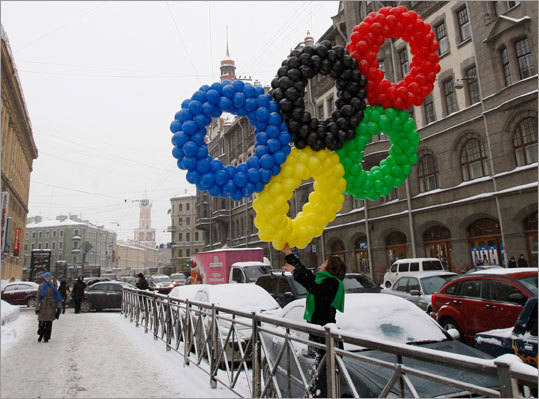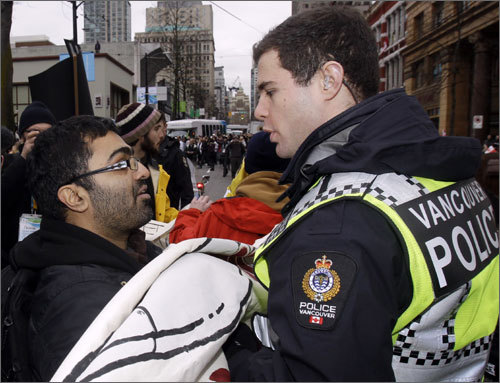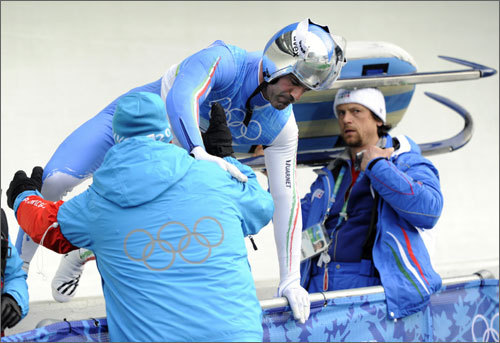Canada's opening ceremonies statement: we're not America
The opening ceremonies of the Vancouver Winter Olympics were most memorable when they highlighted what makes Canada unique – and different from its southern neighbor.
The opening ceremonies of the Vancouver Winter Olympics Friday night stressed the Canadian connection to nature. They included a scene based on Cathedral Grove on Vancouver Island.
Vancouver, Canada
The day before the opening ceremonies, the chief executive of the Vancouver Organizing Committee was asked what story he hoped to tell on the Winter Olympics’ first night.
“Often people think we’re you,” he said to an American journalist. “This is part of a chance to let Canada be seen on its own terms.”
So it was.
Indeed, the most memorable moments of the opening ceremonies came when Canada felt perhaps most unfamiliar. Fiddlers dressed like Hells Angels? Weary white-clad travelers walking across the snowy tundra? The aurora borealis come to earth?
No one will be mistaking that for America. It was, in the spirit of the national anthem, “the true north strong and free.”
The ceremonies painted Canada as the stately columns of Douglas fir in Cathedral Grove on Vancouver Island. Or as a pod of orca whales, gliding beneath the calm surface of the Pacific.
Time and again, the ceremonies returned to a theme that, to the visitor to Canada, appears an animating and distinguishing characteristic of life here: a love and even reverence for the vastness of the Canadian wilderness.
In a nation where the people are still swallowed within the enormity of nature – still as much guests as masters – awe at the outdoors is a instinct sewn into the very core of the country’s being.
Canadians have striven to put on the greenest Winter Olympics in the history of the movement not because it was perceived to be the right thing to do, but because it accords with the deepest sense of what Canada is, and the opening ceremonies caught some glimpse of that.
A note of compassion
Canadian, too, was the demeanor of VANOC chief executive John Furlong, who could not even manage a smile on what could be considered the most triumphant day of his professional life. That was because a 21-year-old Georgian Olympian, Nodar Kumaritashvili, had been killed earlier in the day in a crash on the luge course.
For Furlong, all the spectacle of years of work finally come to fruition could not outweigh the compassion he felt for one young guest to his Olympic Games.
Along a downtown Vancouver street, one chain of bookstores has plastered every display with a bold claim: The world needs more Canada.
During the next 16 days, the world will get a double helping. It remains to be seen how Canada will manage the expected victories on the podium as well as the expected disappointments of weather that could try the patience of athletes and audience alike.
On Friday night, however, Canada gave the world a sneak peek of a world with a lot more Canada.
And it was quite pleasant.









































































